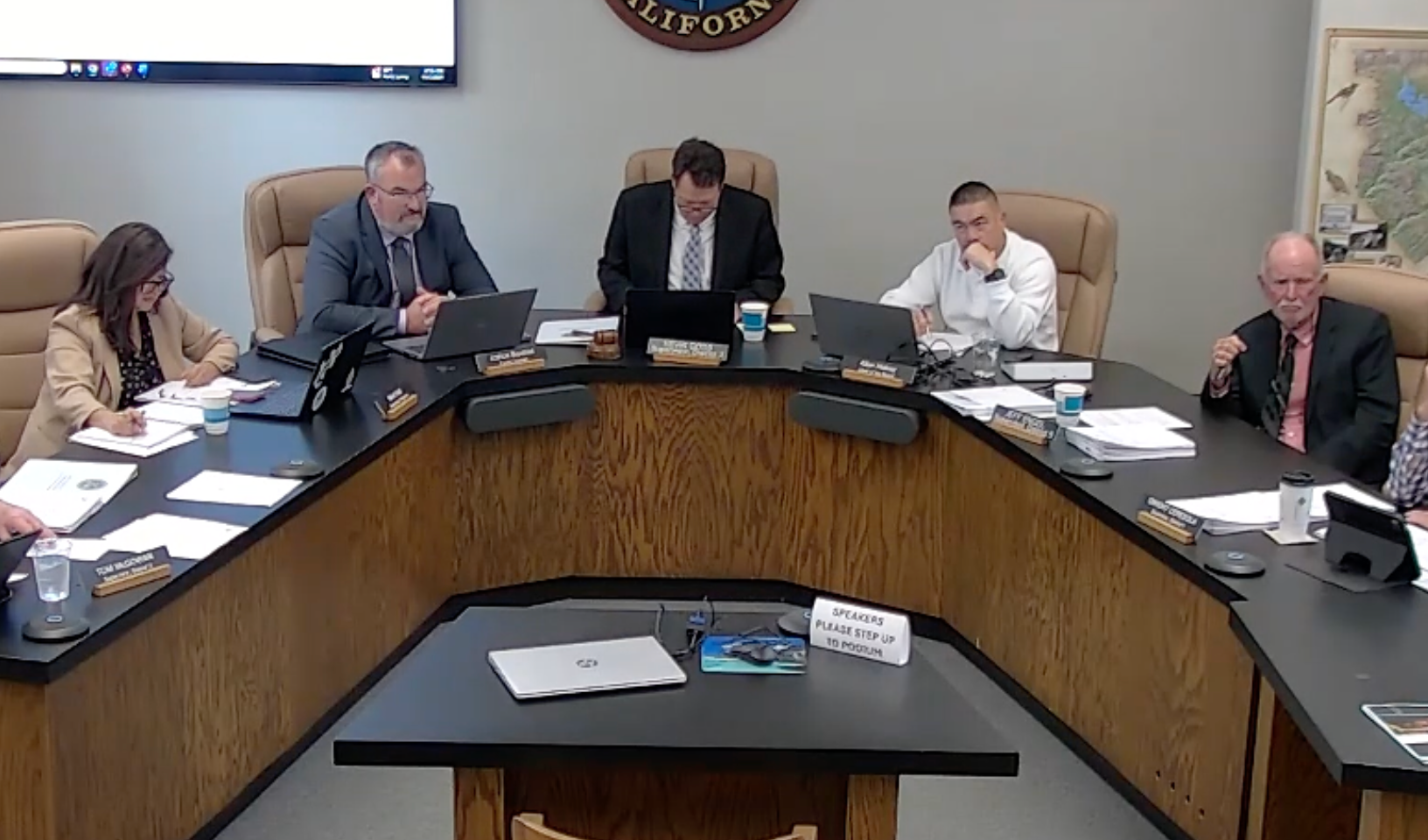Plumas Supervisors Hear Updates on CalFresh, Tourism Taxes
November 7, 2025

Plumas supervisors hear updates on SNAP benefits expiring.
QUINCY — Jennifer Bromby of Plumas County Social Services provided an update on the status of CalFresh, California’s SNAP program, during the ongoing federal government shutdown at the November 5 meeting of the county Board of Supervisors. As of June this year, 1566 Plumas County households, comprising 2423 people, with 27% of those being children under 18 and 23% adults 60 or older, received CalFresh benefits worth a total of $451,800, according to data she presented. The California Department of Social Services is advising those beneficiaries that they can continue to use money remaining on their EBT cards, but no new funds can be added until federal funds are restored. She described the situation as “very fluid,” changing even during the meeting. Supervisor Mimi Hall characterized the loss of CalFresh benefits as “a $450,000 hit to the local economy.” Supervisor Hall said that people wishing to contribute to food aid can donate at the Feather River Food Co-op in Quincy and Portola, and that monetary donations are preferred, due to the difficulty of storing and handling donated food.
The Board also held a public hearing on a proposed resolution that would extend funding for the Plumas County Tourism Marketing District for 10 years and increase the assessment that lodging providers pay to support the district from 2% to 3% of gross revenue on short-term stays. The resolution was prompted by a petition from lodging providers that pay more than 50% of the total assessment to renew the district.
Comments at the hearing showed a split over whether the district should be renewed in its current form and whether the current funding formula is equitable and feasible to apply. Speakers in favor of renewing the district said it provides a vital presence online and in person, and that its marketing had directly helped their businesses. Supporters also noted that the assessment is not paid by lodging providers, who only collect the assessment from visitors and pass it through to the county.
Opponents of the measure questioned the effectiveness of the district’s marketing efforts. They also argued that the assessment is not equitable because it falls mainly on motels and bed and breakfast inns, while most short-term rentals do not contribute. There has been a long-standing concern that short-term rental providers don’t consistently pay the assessment or the county’s temporary occupancy tax (TOT) because they are unaware of the requirements, or because third-party agents like Airbnb and VRBO fail to make required payments. Tax Collector Julie White said that Airbnb and VRBO are difficult for her office to work with. A second public hearing on the resolution will be held on December 9.
Featured Articles

Storms Bring Heavy Rainfall and Local Disruptions →
December 22, 2025
Sierra County faces power outages and water issues amid heavy rainfall and storm warnings.
215 Animals Seized for Cruelty from Grass Valley Property →
December 22, 2025
Human Remains Found Near South Yuba Bridge in March Identified →
December 17, 2025
Transfer Station Burn Suspended After Community Concerns →
December 16, 2025
Sierra Hardware Plans Extensive Repairs After Flood Damage →
December 8, 2025